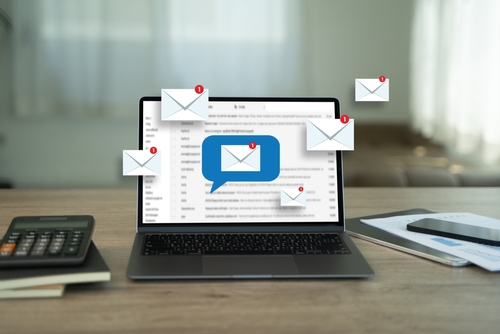Every morning, it’s the same routine: you check your emails, and there it is—another message from someone claiming they can get your website to the top of Google. It’s like clockwork, and it can be pretty annoying. But why are these emails piling up in your inbox, and how do you know if any of them are worth your attention? Let’s dig into what’s going on.
The Big Promises Made by SEO “Experts”
You’ve probably seen those bold promises: “We’ll get you to the top of Google!” or “Double your traffic in just a few weeks!” It sounds fantastic, especially if your website isn’t getting the traffic you’d like. But here’s the thing—SEO isn’t a quick fix. Think of it like planting a tree. It takes time to grow strong roots before you see the results.
A lot of these emails rely on outdated or risky tactics. They might suggest buying backlinks or cramming keywords into your content. These methods might have worked a decade ago, but now they can actually hurt your website. Search engines like Google have gotten much better at detecting these tricks, and using them can lead to penalties that drop your site down in rankings—or worse, remove it from search results altogether.
If an offer sounds too good to be true, it probably is. Real SEO is about slow and steady growth, similar to building a long-term digital marketing strategy.

Why These Claims Can Be Deceptive
SEO is a moving target. The rules change constantly, and anyone who claims to have a surefire method for success might not be telling the whole truth. SEO is more like a marathon than a sprint. It’s about building trust with search engines by consistently offering valuable content and a good user experience.
Think of it like training for a race. You wouldn’t sprint the entire way, expecting to win. You need to pace yourself, stay focused on the long-term goal, and be prepared to adjust your strategy as needed.
Some businesses have tried to cut corners, only to regret it later. They might see a short-term boost from using questionable tactics, but it often comes back to bite them when search engines catch on. Their rankings drop, and they’re left scrambling to fix the damage. The lesson? SEO is about doing things right, even if it takes a bit longer. You might find these tips for creating E-A-T compliant content helpful in staying on the right path.
Why Is SEO Such a Crowded Market?
So, why are these emails bombarding your inbox? The SEO industry is packed with people claiming to be experts. It seems like anyone with a computer can start offering SEO services, which is why your inbox is overflowing.
But just because someone can send you an email doesn’t mean they know what they’re doing. Many of these so-called experts are just trying to make a quick sale. They’ve figured out that sending mass emails is an easy way to find clients, but that doesn’t mean they have the know-how to deliver on their promises.
The real professionals? They don’t need to spam your inbox. They’ve built solid reputations and get clients through word-of-mouth and proven results.
How Do These “Experts” Find You?
Ever wonder how these SEO folks got your email in the first place? It’s not random. Many companies use tools to scrape the internet, collecting email addresses from websites, directories, and social media profiles. Some even buy lists of email addresses from other companies. That’s why it feels like you’re being targeted from all directions.
Here’s another thing to watch out for: many of these emails come from generic Gmail accounts. Legitimate businesses usually use their own domain for emails (like [email protected]). If someone is contacting you from a free email service, it’s a red flag that they might not be as professional as they claim.
To protect yourself, be mindful of where you share your email address. Use strong spam filters to keep junk out of your inbox, and consider using a separate email address for business inquiries. You can also learn more about spotting SEO scams.
Spotting Red Flags in SEO Emails
Not every SEO email is worth your time. There are a few key signs that can help you spot the ones that belong in your spam folder.
First, if they’re vague about how they’ll improve your site’s ranking, that’s a major red flag. A good SEO provider should be able to explain their strategy clearly, without resorting to jargon or vague promises.
Second, be wary of anyone who guarantees results. No one can promise you’ll be on the first page of Google because search engine algorithms are complicated and constantly changing. If someone’s pushing you to make a quick decision, it’s probably because they’re more interested in closing a sale than helping your business succeed.
The bottom line? A good SEO expert will take the time to understand your business and offer advice that’s specific to your needs.
Questions to Ask Any SEO Provider
If you’re considering working with an SEO provider, it’s important to ask the right questions. Start by asking about their experience—can they show you real examples of their work? What kind of results have they achieved for other businesses?
Also, ask about their approach. How do they plan to improve your SEO? What methods do they use, and why? If they can’t explain it in simple terms, that’s a problem.
Finally, talk about communication. How often will they update you? What metrics will they track to measure progress? Clear answers mean you’re dealing with someone who knows what they’re doing.
For more insights, check out this guide on selecting the right digital marketing company.

How to Stop the Email Flood
Tired of these emails cluttering up your inbox? You can take a few steps to cut down on the spam. First, set up spam filters to catch the worst offenders. Most email services let you block or filter out messages from unknown sources or those with typical spammy content.
You can also use a separate email address for business inquiries. This keeps your main inbox clean and free from spam. And be careful where you share your email—don’t post it on public forums or social media where it can be easily picked up by spammers.
For more tips on keeping your inbox clean, check out this guide on reducing SEO spam.
Arm Yourself with SEO Knowledge
The best way to protect yourself from bad SEO advice? Get informed. The more you know about how SEO works, the easier it is to spot the bad actors and make smart decisions. There’s plenty of information out there—blogs, courses, and webinars can help you get up to speed.
When you understand the basics, you’re in a better position to manage your SEO, whether you’re doing it yourself or working with an expert. And don’t forget to keep learning—SEO is always changing, and staying on top of trends is key to long-term success.
Stay informed, ask the right questions, and trust your instincts when something doesn’t feel right. Your inbox—and your website—will thank you.
Common Questions About SEO Emails and Spam
Why am I getting so many SEO emails?
You’re likely receiving a lot of SEO emails because your contact information has been collected by companies using email scraping tools or purchased email lists. The SEO industry is crowded, and many so-called “experts” use mass email campaigns to reach potential clients.
Why am I suddenly getting lots of spam emails?
If you’re suddenly getting a flood of spam emails, it could be because your email address has been added to a new spam list or shared online in a way that makes it easy for spammers to find. It’s also possible that a recent online purchase or subscription exposed your email to more marketers.
How to stop getting so many spam emails?
To reduce the number of spam emails, you can set up strong spam filters in your email client, unsubscribe from unwanted newsletters, and avoid sharing your email address on public websites. Using a separate email address for sign-ups and online purchases can also help.
How do I remove an email from my spam list?
To remove an email from your spam list, you typically need to mark it as “Not Spam” or move it to your inbox manually. This action tells your email provider that emails from this sender should go to your inbox in the future.
Is it better to block or delete spam?
Blocking spam is more effective than simply deleting it. When you block a sender, their emails won’t reach your inbox at all. Deleting, on the other hand, only removes the message but doesn’t prevent future emails from the same source.
Is there a way to automatically delete spam emails?
Yes, most email clients allow you to set up rules or filters to automatically delete emails that meet certain criteria, such as messages from specific addresses or with certain keywords.
Can you permanently block spam emails?
You can block specific email addresses permanently, but spammers often change their addresses. Using a good spam filter and regularly updating your block list can help reduce spam, but it might not stop it completely.
How do I quickly unsubscribe from spam emails?
Most legitimate emails will have an “unsubscribe” link at the bottom. Use this link to stop receiving emails from that sender. Be cautious, though—some spam emails use fake unsubscribe links to verify that your email address is active.
How do I delete thousands of spam emails?
If you have a large number of spam emails, most email clients allow you to select all and delete them in bulk. Look for options like “Select All” or “Empty Spam Folder” to quickly clear out your spam.
Will spam emails eventually stop?
Spam emails might decrease over time if you consistently block senders and avoid sharing your email address publicly. However, it’s unlikely that they will stop completely.
What is the best email spam blocker?
The best spam blocker depends on your needs, but popular options include built-in filters in email services like Gmail, Outlook, and Yahoo, as well as third-party software like SpamAssassin, MailWasher, and CleanEmail.
How do you stop someone from using your email address for spam?
Unfortunately, you can’t completely prevent someone from spoofing your email address, but you can take steps to protect it. Use strong, unique passwords for your accounts, enable two-factor authentication, and regularly monitor your email activity for any signs of abuse.
This FAQ section should help answer common concerns your readers might have about spam emails and how to deal with them effectively.


